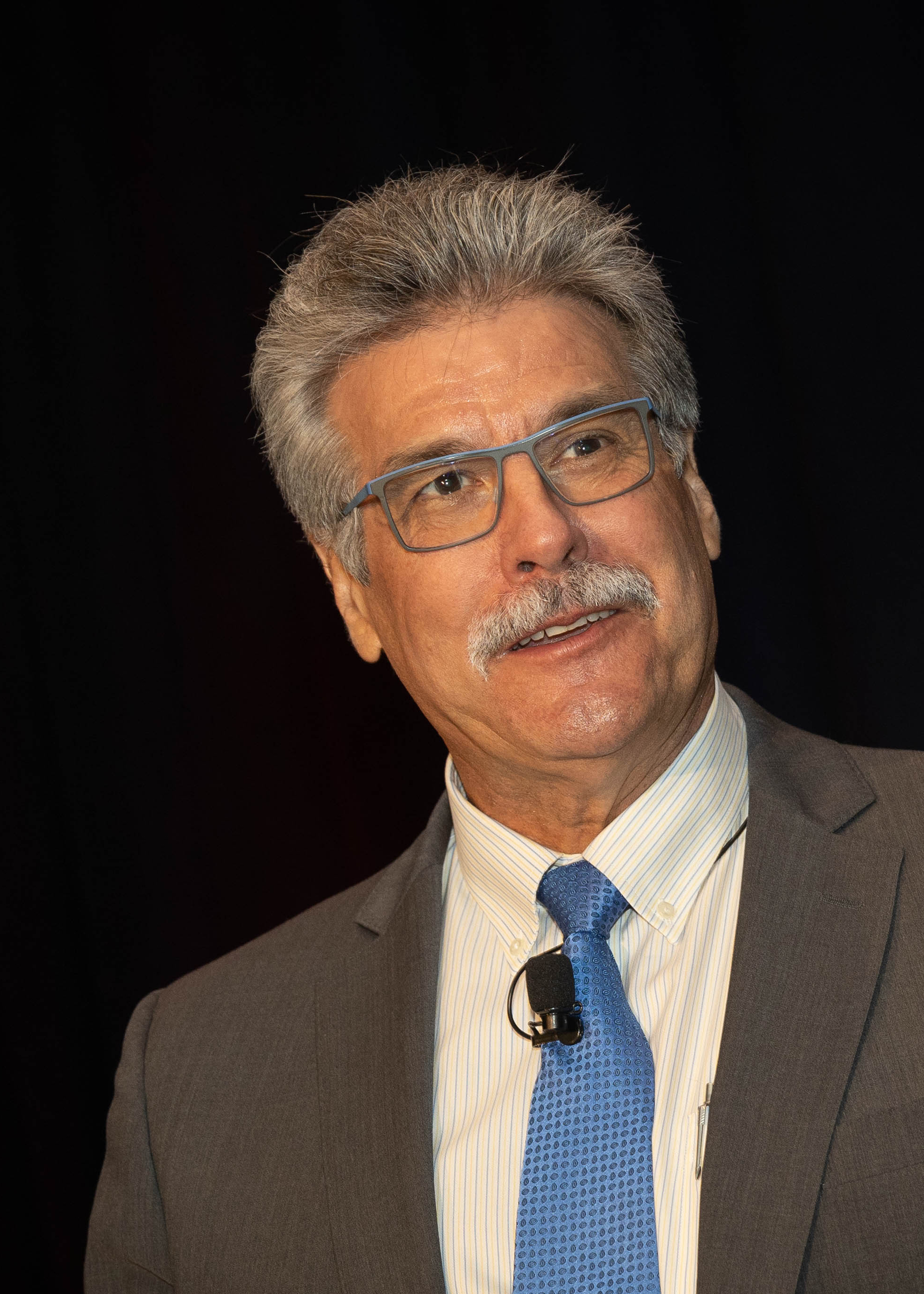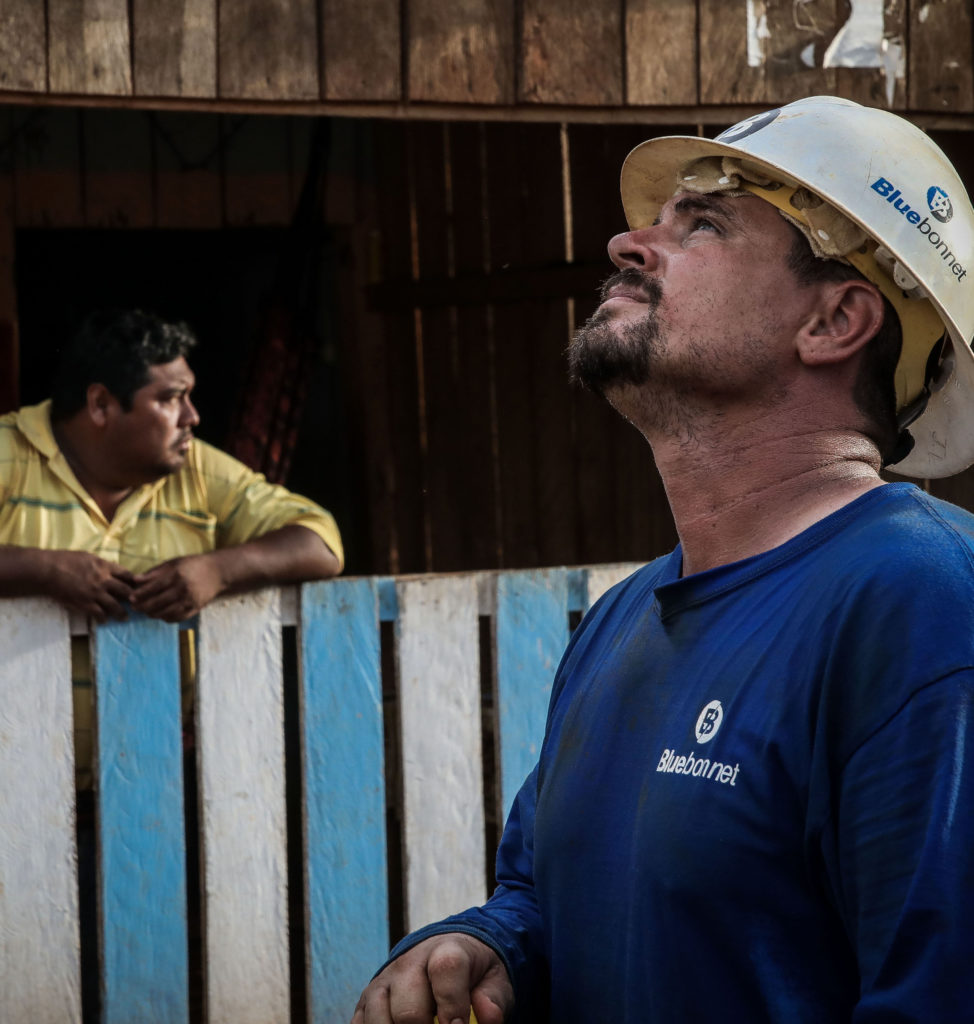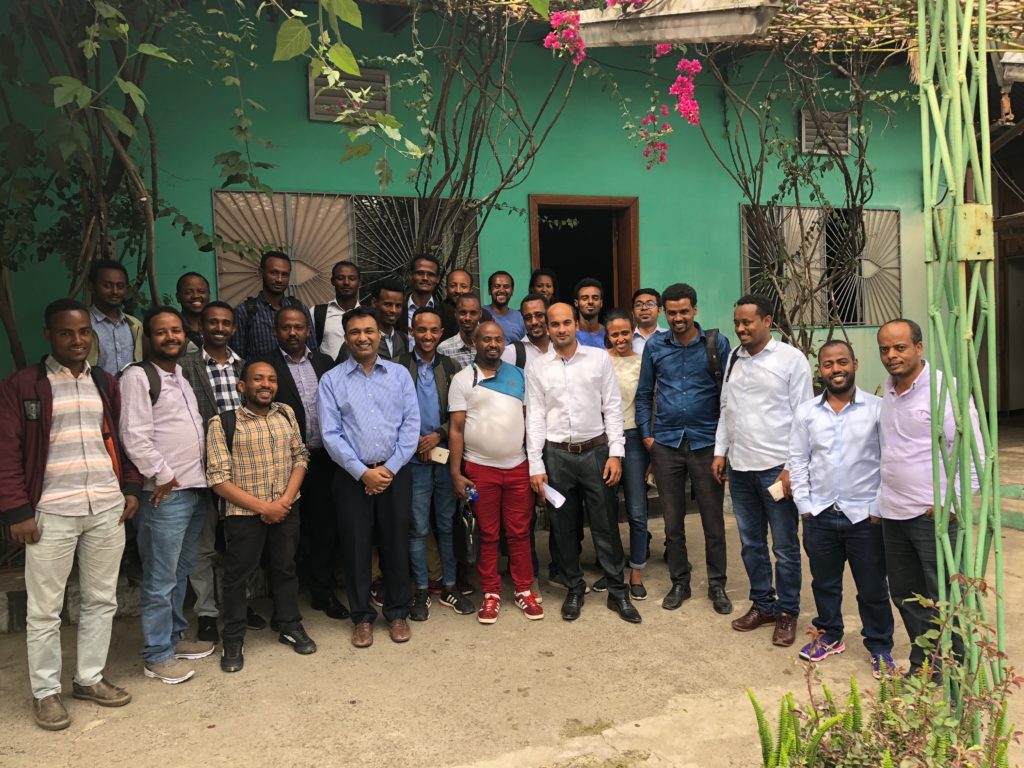A look into the future
Efforts to implement rural electrification plans in developing nations have taken a leap forward in the last few years. Last year for the first time, the number of people in the world without access to electricity dropped to below one billion. Many countries are developing national strategies to achieve full electrification by 2030. And while achieving these goals may take longer than planned, full access to electricity has become an economic development priority.
For 38 years, Dan Waddle has worked with national partners, funding agencies and rural communities around the world to bring electricity access. He has been at NRECA International’s helm for 9 years. Recently, he shared his thoughts on the changes he’s witnessed in the international electrification community, what direction he envisions taking his team, and why support from America’s electric co-operatives remains strong.

Dan Waddle, Senior VP, NRECA International
When did you start seeing this monumental effort of global rural electrification turn a corner?
What I have witnessed in the past five years goes beyond anything I have seen in my lifetime. In the international electrification community, the level of commitment, investment and the pace of accomplishment is stunning. When I began working on the
The Philippines has had similar success – they’ve achieved about 90% connectivity by continuing to emphasize expansion while improving overall program viability.
In Africa, many of our partners are making significant investments in grid and off-grid infrastructure. Countries like Kenya are increasing connectivity with initiatives like “The Last Mile” program to provide service to all households in Kenya by 2022. Uganda and Ethiopia have developed national electrification strategies and plans to rapidly accelerate grid expansion and expand off-grid coverage significantly in the coming years. Most of our program partners in Latin America are in similar stages of program development. These are all remarkable achievements.
This is great news. What can we expect to see happen in the next five years?
I’m excited about the progress that we see unfolding, but the world around us continues to change and there is much yet to be done. NRECA International has served the electrification community for nearly 60 years and while it has taken a long time to develop, the central theme of our mission is coming to fruition. It will take many more years for universal access to happen in each continent, but the foundation has been established by many of our partners.
My team members continue the work we have been doing in national electrification planning, promoting low-cost electrification standards, training engineering, management, commercial and lineworker staff, and introducing advanced technology where it may serve to improve quality, improve revenue recovery and improve overall sustainability.
With the foundation laid for many of these countries, what role will NRECA International play to keep the momentum moving?
It is an intriguing question for us. We provide a wide variety of services to our clients, but the core theme of our program has been expanding access with reliable and affordable service. This almost unimaginable goal that we set for ourselves six decades ago is coming to pass by the very diligent efforts of the governments and communities with which we have worked all these years.
What’s next?
This is a question we have begun to ask ourselves, one that we will contemplate for the next several years, one that will require adjustments, repositioning and a new logic and perspective of our team. We are adjusting our business model and addressing the changing needs of our clients. For instance, the economic transformation that comes with electrification won’t happen unless farms, small businesses, and small industries learn to use electricity productively and efficiently. And the newly formed rural utilities will need to adapt to new power supply, enterprise efficiency and financial challenges – just as our U.S. cooperative community did.
You continue to have strong support from U.S. member co-ops. Why is this work important to them?
It’s a question of values. We also have this principle of assisting other communities who are in need. It’s one of our core values as a cooperative institution to provide assistance to those who aren’t as fortunate as us. If you talk to rural cooperative managers about what they get out of our international program, those who participate in it say, “It educates our employees about what cooperatives are really about.”
Most of our cooperative employees were not around when a cooperative was in the business of connecting communities for the first time. We don’t use volunteers on all of our projects, but we design projects to give them the experience of bringing service to communities for the first time. It allows the cooperatives to connect with their origins, to re-energize some of their employees.

My direct experience is that the human soul has a natural tendency toward generosity. That’s part of who we are as human beings. We have the opportunity to manifest that generosity in a practical way. In our business, you not only can exercise your professional talent but also help other people who are in dire need.
Making a lot of money is not better. Having that experience of seeing others benefit from the work that you do because you’re contributing with a team of people who all have that common sense of purpose, that’s enormously fulfilling.
